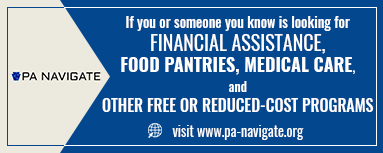At BCHIP, we work to ensure that all residents of Bucks County have access to quality healthcare and accurate healthcare information so that they can make educated decisions regarding their personal health needs. Healthcare advance directives can ensure that your wishes are carried out if you cannot speak for yourself at some point.
Healthcare advance directives are legal documents that provide instructions to medical personnel about the types of treatment you do and do not want to receive. Advance directives should also name your primary healthcare proxy or durable power of attorney – the person who will make medical treatment decisions for you, applying the guidelines you have listed in your advance directive. It is wise to have a couple of alternative names, in case your primary person is unavailable in the case of an emergency.
There are a lot of misconceptions about healthcare advance directives. It’s important to dispel myths so that everyone knows the value of having an advance directive and makes the effort to create a useful document.
Myth: Only the elderly, sick, seriously ill, or those going into surgery need a healthcare directive.
TRUTH: Every adult should have an advance directive or living will. While it may seem logical to us that someone who is sick or elderly should prepare in advance in case they cannot speak for themselves, almost everyone knows someone young who has been in a serious accident or became suddenly incapacitated. Who will speak for them? What family member or close loved one will help them, if they don’t have a healthcare directive? Without a healthcare proxy or advance directive, doctors will not know their wishes. Young people out on their own for the first time, especially in a new town, really need an advance directive. They should keep it on their person or in an obvious location on their phone so that someone could find it if needed for an emergency.
Myth: Living wills are complicated and only talk about end-of-life, the refusal of treatment, or the limiting of treatment.
TRUTH: Advance directives inform your medical team about what YOU want, whether that means continuing treatment or limiting treatment under certain circumstances. It is perfectly reasonable for you to have in your advance directive that you do indeed want to continue to receive medical treatment until every resource has been thoroughly exhausted. Or you may ask to be treated until your heart stops twice and you have been resuscitated twice in a row, after which, you can be permitted to die if your heart stops again. With the advice of a trusted doctor or advance directive consultant, you decide what treatments you do and do not want.
Myth: Advance directives are not legally binding unless filed with the court.
TRUTH: Advance healthcare directives are legally recognized documents that need to be witnessed but do not need to be filed in court. You should provide all your doctors with a copy of the document and keep it in several safe places, informing your family of its location. Doctors are given legal immunity if they follow your advance directives, even if in another situation, the doctor might make different decisions. At the same time, doctors may refuse to comply with your advance directive if it is against their conscience or if they are convinced that it is not good medical practice. They are then obligated to transfer you to another healthcare provider.
Myth: It’s too hard and too complicated to create a living will.
FACT: Living wills/advance directives can be easily created, and we can help. Through our Advance Care Planning Program, we provide one-on-one consultations to walk you through the steps so that you address all major issues.
Two-thirds of all American adults have no advance directive or living will. Two-thirds of all American adults are in danger of having their healthcare decisions made at the discretion of their doctor or whatever doctors are caring for them in an emergency situation. Please make the effort to document your wishes now, while you can still speak for yourself.






